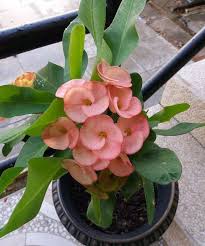The Hualin Temple Festival and Spiritual Activities: A Cultural and Religious Celebration in Guangzhou

The Hualin Temple in Guangzhou is a significant religious and cultural landmark, not only serving as a place of worship but also as the heart of a vibrant spiritual community. It has long been an important site for Buddhist practices and is renowned for its rich history, majestic architecture, and profound influence on both local and regional religious traditions. One of the most remarkable aspects of the Hualin Temple is its annual festival, which attracts thousands of worshippers and visitors alike. This festival, deeply rooted in Buddhist customs and local traditions, is a time of intense spiritual reflection, prayer, and community gathering.
In this article, we will explore the Hualin Temple Festival, its historical and cultural significance, and the various spiritual activities that take place during this important event. We will also delve into the way the festival brings together the local community and fosters a sense of devotion, spiritual renewal, and unity.
The Hualin Temple: A Spiritual Sanctuary
Before delving into the festival itself, it is essential to understand the significance of Hualin Temple in Guangzhou. The temple, also known as the Hualin Buddhist Temple, is one of the oldest Buddhist temples in the region, with origins dating back to the Tang Dynasty (618–907 AD). The temple is dedicated to the Buddha Sakyamuni, the founder of Buddhism, and is a prominent center for Zen Buddhism, a tradition known for its emphasis on meditation and direct realization of the Dharma.
Hualin Temple has long been a place of spiritual pilgrimage, attracting people from all over China and beyond. The temple’s serene environment, beautiful architecture, and historical artifacts make it a focal point for Buddhist worship, as well as for cultural and religious activities throughout the year.
The Hualin Temple Festival: A Celebration of Buddhism and Tradition
The Hualin Temple Festival is an annual event that celebrates the temple’s heritage and its deep connection to the Buddhist tradition. Held in honor of Buddha’s Birthday, the festival is one of the most important religious celebrations in Guangzhou. It typically takes place during the fourth month of the lunar calendar, coinciding with the Buddha’s birth as well as his enlightenment and nirvana. This festival not only commemorates the life and teachings of the Buddha but also provides an opportunity for followers to renew their faith, engage in spiritual practices, and connect with the broader Buddhist community.
During the festival, the temple is adorned with flowers, incense, and decorations, creating an atmosphere of peace and reverence. The event draws thousands of worshippers, both local and international, who come to offer prayers, participate in rituals, and witness the sacred ceremonies. The festival is not only a spiritual occasion but also a time for cultural exchange, as it fosters a sense of community and shared devotion among Buddhists and non-Buddhists alike.
Key Spiritual Activities during the Hualin Temple Festival
The Hualin Temple Festival is marked by a variety of spiritual activities, each one designed to deepen the participants’ connection to the Buddha’s teachings and promote spiritual growth. Some of the most significant activities during the festival include chanting, prayers, meditation, and offerings, all of which are aimed at cultivating inner peace, compassion, and wisdom.
1. Buddha’s Birthday Ceremony
One of the most anticipated events during the Hualin Temple Festival is the Buddha’s Birthday Ceremony. This ceremony takes place on the 8th day of the fourth lunar month and is the focal point of the entire festival. During this ceremony, devotees gather at the temple to celebrate the birth of Sakyamuni Buddha, and they participate in various rituals that reflect the Buddha’s teachings and life story.
A central part of the ceremony is the bathing of the Buddha—a ritual where worshippers pour water over a small statue of the Buddha to symbolize the purification of the mind and body. This ritual is deeply symbolic, representing the washing away of past negative karma and the renewal of one’s spiritual path. It also signifies the practice of compassion, as the act of bathing the Buddha is seen as an offering to all sentient beings.
The chanting of Buddhist sutras is another significant component of the Buddha’s Birthday Ceremony. Monks and nuns lead the congregation in reciting sacred texts, such as the Lotus Sutra and the Heart Sutra, which expound on the fundamental principles of Buddhist philosophy. This chanting fosters a sense of spiritual unity and collective devotion among the participants, helping them to attune their minds to the teachings of the Buddha.
2. Offering Rituals and Alms Giving
Throughout the festival, various offering rituals take place, allowing worshippers to make symbolic offerings to the Buddha and the monastic community. These offerings typically include incense, flowers, fruit, and candles, all of which represent purity, impermanence, and the transient nature of life. The act of giving offerings is an essential practice in Buddhism, as it cultivates generosity and serves as a reminder of the impermanence of material possessions.
In addition to offerings, the alms giving ritual is another prominent feature of the Hualin Temple Festival. During this ritual, worshippers make donations to the monks and nuns, supporting the monastic community’s spiritual practice and upkeep of the temple. Almsgiving is seen as an act of merit-making, helping individuals accumulate positive karma that will benefit them in this life and future rebirths.
3. Meditation and Mindfulness Retreats
The Hualin Temple Festival also includes opportunities for meditation and mindfulness practice. Throughout the festival, visitors are encouraged to engage in silent meditation to deepen their understanding of Buddhist teachings and cultivate a calm and focused mind. Meditation sessions are often led by experienced monks who guide participants in the practice of zazen (seated meditation), helping them to let go of distractions and center themselves in the present moment.
For those who wish to deepen their meditation practice, the temple offers meditation retreats during the festival. These retreats provide a serene and supportive environment for individuals to immerse themselves in silent meditation, chanting, and reflection. The aim of these retreats is to help participants cultivate a deeper connection to the Dharma and experience the transformative power of meditation.
4. Lantern Procession and Light Ceremony
Another highlight of the festival is the Lantern Procession and Light Ceremony, which takes place on the evening of the festival’s opening day. During this ceremony, thousands of colorful lanterns are lit and paraded around the temple grounds. The lanterns represent the wisdom of the Buddha, and their light symbolizes the dispelling of ignorance and the illumination of the path to enlightenment.
The lantern procession is a joyful and vibrant event that attracts both locals and visitors. It serves as a visual expression of the Buddhist aspiration for peace, wisdom, and compassion, and it is a reminder of the Buddha’s enlightenment, which brought light to the world.
The Cultural Significance of the Hualin Temple Festival
Beyond its religious importance, the Hualin Temple Festival plays a vital role in the cultural life of Guangzhou. It serves as a point of connection between the local community and the broader Buddhist world. During the festival, visitors from across China and even abroad come to Guangzhou to witness the rituals, offer prayers, and experience the beauty of Buddhist practices.
The festival also fosters a sense of community and cultural continuity. By participating in the festival’s activities, both young and old generations come together to honor their cultural and spiritual heritage. The event highlights the importance of shared rituals and collective worship in maintaining the vibrancy of religious and cultural traditions.
Moreover, the festival provides an opportunity for people to reflect on their spiritual path, renew their commitment to compassion and wisdom, and engage in acts of merit-making. The Hualin Temple Festival is thus not only a celebration of the Buddha’s life and teachings but also a time for personal renewal and reflection.
Conclusion: A Spiritual and Cultural Celebration
The Hualin Temple Festival is an exceptional blend of Buddhist ritual, community gathering, and spiritual renewal. With its deep historical roots, spiritual significance, and vibrant activities, the festival stands as a testament to the enduring importance of Buddhist teachings in Guangzhou. Whether through chanting, meditation, or ritual offerings, the festival offers opportunities for all participants to deepen their understanding of Buddhism and cultivate inner peace.
As one of the most important Buddhist festivals in the region, the Hualin Temple Festival continues to attract people from all walks of life, fostering unity, spiritual growth, and cultural exchange. It is a profound celebration of faith, tradition, and community—a celebration that reminds us of the wisdom and compassion at the heart of Buddhist practice.

